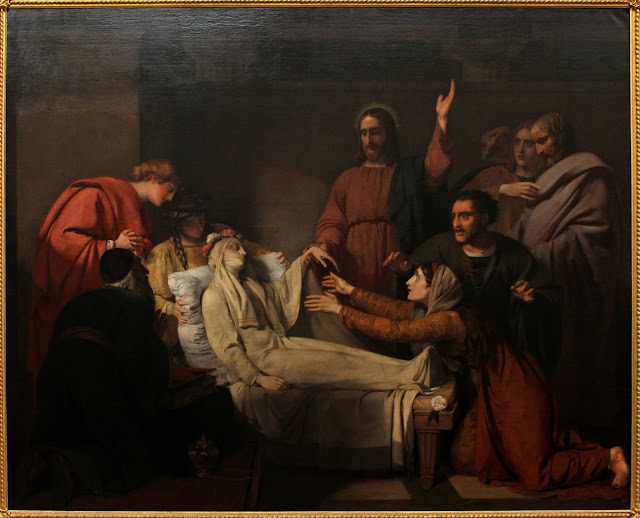The Giver and NOT the Gifts
Can my consumption of God's providence be toxic to my relationship with God? Yes, we can become more in love with what God can do for us than we are with God (Psalms 78:30-42). God is a great giver. However, if one becomes attached to His gifts instead of Him, they become less free to be moral and (still more) authentically loving to themselves, God, or others. Augustine in his City of God distinguishes between the two options: “love of self, even to the contempt of God…[or]… the love of God, even to the contempt of self”. Many come to a moment in their life and find themselves unable to follow God’s will as they once had (see Matthew 19:16-30 RSVCE). Processed sugar, alcohol, snacking, warm showers, nice cars, immoderately watching TV, a job, wealth, etc. In moderation, none of these are bad in themselves, but of course, all together they breed attachment quite easily. The question is not whether they are good but rather: does your consumption of them bring you closer to or further from God?, not as much "should I?" as "how much?, "when?", "how?", and above all "why?". Our life is not our own and neither are these gifts.
First, when asking the question of “should I”, we usually also seek the answers to “why” first. What makes us feel we “need” something? Is it the Spirit of God, the world, the enemy? What can happen, is that we often give the body what it craves when every time it throws a “tantrum”. As soon as we began to satiate our bodily and impulsive passions, our struggles with moderation, prudence, and sin increase. Soon, the body becomes our master have its way with us as it sees fit. However, we were not made for instinct but were given intellect and will to help us respond to God well. We need to hold ourselves back at times lest we become a slave to our passions.
Still remains the questions of “when” and “how”. Moderation is not just an affirmative/negative question. Sometimes the manner in which we receive God’s gifts reveals our relationship with Him. Do we instantly grasp on to what He gives us and go hide and consume it without Him? Likewise, if we don’t limit our intake of good things they can become unhealthy. As Catholics, we have an external mechanism to regulate these behaviors. For us, feast and fast are frequently used words. We dedicate the reception of certain goods to specific Church celebrations. In doing so, we both regulate our consumption and make it a way to draw us closer to God. Especially in the times of Lent and Advent, we are called to draw closer to God by limiting our intake of His gifts and doing something good in its stead. Detaching from lesser goods, such that we are freer to receive higher goods. Ultimately, we don’t need His gifts, as much as Him, our eternal spouse from whom we become distracted through worldly things. These seasons are likened to purgatory which is the process of resorting God’s likeness in which we were created and has been tarnished by sin, and we are purged of our idols whether they are things we explicitly seek ours subconsciously like winning arguments, taking credit for God’s works, or wasting time stuck in our technology.
Further, The question of moderation is not so much about limiting as it is gaining. God has so much to offer us. We limit our ability to receive those things as we latch onto the lesser things. God pours upon us every spiritual grace and heavenly blessing but do we live in a way that makes use of these or do we have our head in the fog of life? Thus, even though fast involves limiting what we once, at least implicitly, considered essential to our happiness, we discover what we can gain. Thus one could say that the life of moderation is a direct implication to living out receptivity to God, a redirection of focus from ourselves to God. What we already have cannot sustain us but God’s generosity is our only hope.
In conclusion, does God need to take something away from us to bring us closer to Him or can we give them up? God is not worth the sum of His gifts just as we are not the sum of our faults. Let us pursue God for His own sake and not treat Him as a means to an end. Certainly, there are times we really need His gifts, but that does not mean we should seek Him for their sake (because you know when we take what was not given us that leads to problems cf. Genesis 3). Let us purge ourselves, by/with/for God’s Grace, of our worldly and vain attachments that we may be free to love God with all our heart, mind, and strength. May He then restore our likeness to Him, that may be as Him to others, and like Him, bring blessing upon all peoples. Let us be formed in loving God by loving those who even hurt us.
Lord who pursues me when a stranger,You protect me from any danger.
From sin and its effects You free me,
Though daily a sinner I am constrained to be.
O God, Who without I can accomplish not,
Bring me Your grace that in Your love I may be caught.
Loving God, free me from,
Any sin which may come.
Help me once more to be like Thee,
because there is nothing else I want but Thee.



